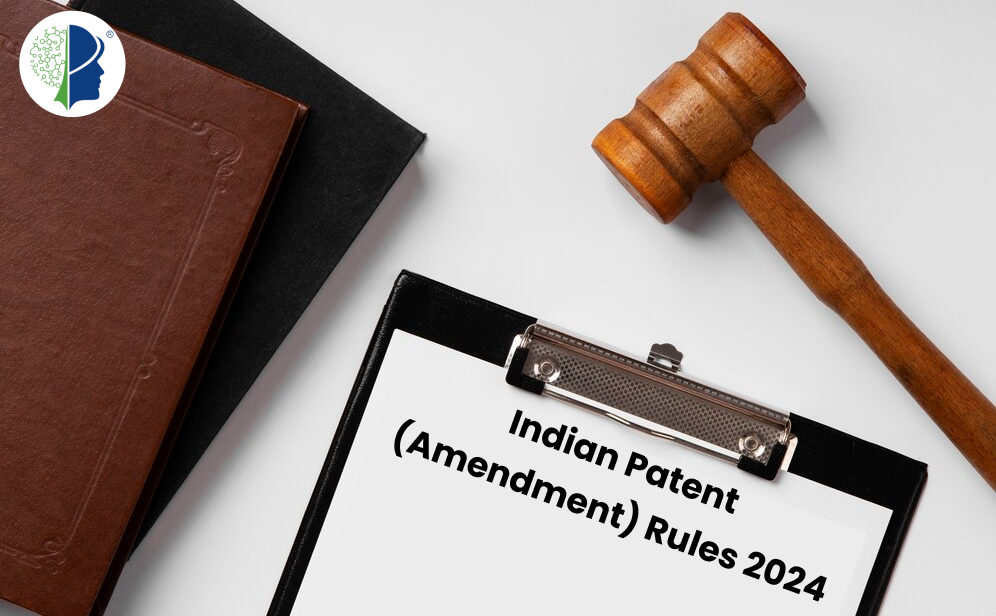On March 15, 2024, the Government of India, through the Ministry of Commerce and Industry (Department for Promotion of Industry and Internal Trade) DPIIT, along with the Indian Patent Office, announced the Patents (Amendment) Rules, 2024. The draft of these rules was made public on August 23, 2023, for discussion and consultation with stakeholders. It received numerous comments and suggestions from various industries.
The Patents (Amendment) Rules, 2024, released on March 15, 2024, aim to address concerns regarding the ongoing requirements for filing corresponding patent applications and submitting statements of working. The key highlights of the modified Rules are:
The new rules have changed the time limits for various steps in the patent application process. Here’s a quick summary of the changes:
Updated Timelines
Timeline for filing a Request for Examination:
- The time to file an RFE has been shortened from 48 months to 31 months from the priority date or application filing date.
- This rule doesn’t apply to applications filed before the new rules came into effect.
Timeline for foreign applications:
- Section 8(1): Updated information on foreign applications must be submitted within three months after receiving the First Examination Report (FER).
- An extension of three months is available for filing Form 3.
- Section 8(2): Controllers now utilize accessible databases for foreign application information. Fresh statements in Form 3 may be requested within two months.
Extension of time for a grant:
Requests for extensions can now be filed anytime within the three-month extended period after receiving the examination report, rather than before the initial six-month due date.
Time extended under Rule 138:
Rule 138 now allows for extensions up to six months and condoning of delays. Requests for extension can be made multiple times within this period.
Working Statements:
Working statements (Form 27) now need to be filed once every three years instead of annually. The first statement is due within six months after the end of the third financial year.
In addition, the amendments have also introduced fresh provisions. They are as follows:
New Provisions
Introduction of Rule 29A: Grace period
Rule 29A introduces a new Form called Form 31, which is used for availing the grace period specified u/s 3.
Renewal Fee Rebate
A reduction in advance renewal fees is now available. Paying renewal fees electronically in advance for a minimum of four years entitles applicants to a 10% discount.
Certificate of Inventorship
The amended rules introduce a provision for issuing a certificate of inventorship upon the inventor’s request.
There have been notable modifications introduced concerning the patent prosecution process. These changes are outlined as follows:
Patent Prosecution Changes
Amendments for patent opposition process (Rule 55):
Now, under Rule 55 changes, when someone opposes a patent before it’s granted, the controller must first see if there’s a clear case. If not, and the opponent doesn’t ask for a hearing, the controller must explain why they’re rejecting the opposition within a month. If there’s no clear case but the opponent wants a hearing, the controller has to hold one and decide within a month, explaining their decision. If there’s a clear case, the controller must decide within a month and inform the applicant. When the controller accepts an opposition, the applicant has two months to provide evidence supporting their application. Two new sub-rules, 5A and 5B, clarify the hearing process, and how applications with oppositions are examined.
Amendments for patent opposition process (Rule 56):
Now, under Rule 56 changes, the Opposition Board has to review opposition notices and related documents. Within two months of getting these documents, they must submit a report with reasons for each argument made in the opposition notice.
Divisional applications modifications:
Changes have been made to the rules about file a divisional application for an invention that was described in either a complete or provisional specification of an earlier filed application, or even in another divisional application.
Further revisions concerning forms and fees are worth noting. They are outlined as follows:
Changes in Official Fees
Extension of Time (Rule 138)
The fee for asking for more time under the new Rule 138 is now INR 50,000 per month for big companies and INR 10,000 per month for others.
Patent of Addition
If you’re filing a patent of addition, the official fee will be half of what you would pay for other types of applications.
Patent Renewal Discount
Paying patent renewal fees in advance through e-filing for at least four years will get you a 10% discount.
Post-grant Opposition
The fee for filing a post-grant opposition has gone up. For big companies, it’s now INR 40,000, and for others, it’s INR 10,000.
For filing a pre-grant representation:
- INR 4000 for individuals, start-ups, small businesses, and educational institutions
- INR 8000 for Other Natural Persons (ONPs)
For requesting a certificate of inventorship:
- INR 900 for online requests
- INR 1000 for offline requests
For requesting a grace period under Form 31:
- INR 500 for online requests from individuals, start-ups, small businesses, and educational institutions
- INR 550 for offline requests from individuals, start-ups, small businesses, and educational institutions
- INR 2500 for online requests from Other Natural Persons (ONPs)
- INR 2750 for offline requests from Other Natural Persons (ONPs)
Mentioning an Inventor:
Previously, there was a fee for mentioning an inventor in a patent application, but now it’s waived.
Surrendering a Patent:
The fee for giving up a patent, which used to be INR 5,000, is now waived.
Changes to Forms and Format of Forms
The formats of the following forms have been changed.
- Form 1 (Application for the grant of a patent)
- Form 3 (Statement & Undertaking under section 8)
- Form 27 (Statement regarding the working of patented invention(s) on a commercial scale in India)
New forms added
- Form 8A for Certificate of inventorship.
- Form 31 for Grace period.
- Form 4 (Request for extension of time or condonation of delay) will now be applicable to Sections 53(2) and 142(4), rules 12(5), 13(6), 24B(6), 24C(11), 80(1A), 130, and 138.
In short, the Amendment Rules aim to make India’s intellectual property system more efficient and supportive of innovation. We believe these changes will help everyone involved in the patent process, including inventors, businesses, and legal experts.
If you need more details or help with these amendments, reach out to us at contact@boudhikip.com.



